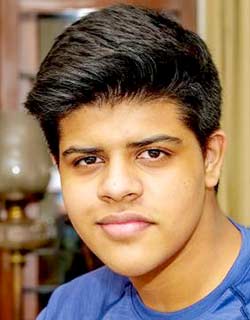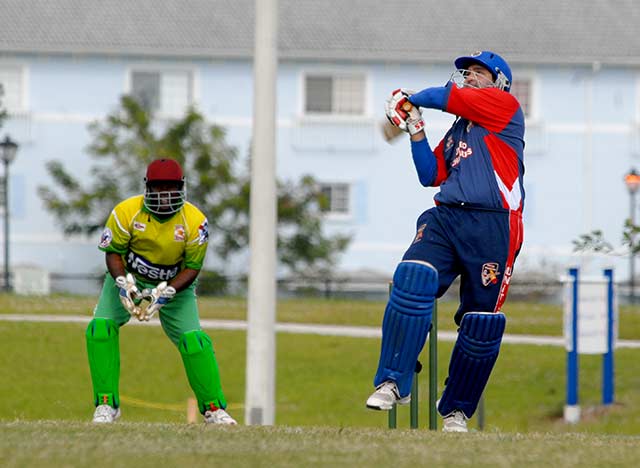By Aryan Joshi
Regardless of the profession or prowess, stress and pressures evade nobody. It is the same with athletes irrespective of the sport. It is only with experience that players develop “mental strength” that furnishes them with an edge over the rest while simultaneously helping to manage pressure. It is gradually collecting the acknowledgment and significance that it merits from the critical elements in the world of sport.

In India, the obstacles that a player faces is ten times compared with the standard difficulties, for example, finance, unfavorable mentalities, biases, inadequate medical and healthcare facilities, to name a few. The range of abilities of the young players is resolved in a background of marginal differences between the opponents, prompting inadvertent stress and struggles.” Mental strength” is any set of positive traits that can help individuals with adapting to adversity. It is considered a measure of a person’s resilience, a quality that is much desired by any profession. It gets the attention of an athlete all the more so because of the effect it has on his performance.
Various mental and psychological elements like inspiration, focus, self-control, discipline, strong work ethic, and more play an integral part in an athlete’s career, and they must be coped with by comprehension and executing the concept of mental strength.
Social experiences, childhood environments determine the experience-based aspects of mental strength. The use and improvement of psychological skills and strategies to maintain and enhance mental strength are the “strength components.” Athletes need to be exposed to demanding circumstances, rivalry, and encouragement when confronted with setbacks. There is a need for young sports persons to deal with emotion-rich situations to encourage mental strength. However, the absence of information and the costs represent a challenge to hinder mental strength advancement right from the grass-root level.

“Mental strength” comprises numerous key segments, more so, in competitive sport. Unfortunately, this term is generally misunderstood, mainly owing to the different backgrounds of the players, and makes it essential to look at the crucial attributes required to be a mentally tough performer.
Considering all the factors at play, a training module with specific learning goals that center around aspects of mental strength which are – improved attitude: belief systems, emotions, self-assuredness, cognitive orientation all of which impact the motivation of an individual; knowledge: a condition of being aware of facts and concepts that prompts modifying attitudes and applying skills to perform a particular task better; skills: measurable traits procured through practice like staying calm, maintaining a strict practice and regimen, networking skills; and values: the motivating factors and a set of beliefs that ultimately judge and decide the things that are important to a person; they need to be formed using the existing framework.
An attempt was made to learn from 100 athletes and sports persons who have been successful at an international level. The aim was to understand the difficulties that athletes face and know how they deal with problems, leading to a better comprehension of mental strength components. Such an approach would eventually lead to recommendations on mental strength training and proposals of inclusion of this training in the curriculum for young athletes.
The study “Mental Strength Matters” aims to understand the role of mental strength among athletes and sports persons. The findings could be interpreted on these terms:
● The obvious challenges faced by an athlete ranged from physical injuries to the death of a family member. All factors come into play here – social, economic, political, as well as personal. The popularity of the game, funding, infrastructure, competition, co-operation, rejection possibilities, support system, no access to resources, gender
inequality, and training quality – all these easily contribute to the player’s stress. All these factors need to be considered by looking at the psycho-social environment in India.
● The different ways that athletes conceptualized mental strength to deal with their problems prove the concept’s diversity. General principles like commitment, dedication, positivity, and setting goals were observed very commonly, along with daily life routines like time management, meditation, yoga, helping others, and staying fit physically. Trusting self was found to be the highest explanation for mental strength. There were few ideas like perseverance, motivation, making the right decisions, but very fruitful breathing exercises did not find many takers. Most of the ideas were in tandem with the existing standard of mental strength, mainly because of their experiences or training. However, there seemed to be a lack of clarity over the essential terms used in mental strength. The concepts of mental strength may be arbitrary, but all the answers were invariably found to be easily categorized in the predetermined components. Here, “attitudes” held a more emotional outlook while “knowledge” held the athletes’ most specific viewpoint.
● Even though there are no boundaries set for mental strength, most athletes thought the concept was all to do with attitude neglecting the other significant aspects that formed up to 76% – 81%. Their responses did cover a wide range of emotional, cognitive, and behavioral competencies in a sports career. The concept of values was very low, 7% – 11% regarding team sports and their individual beliefs. Attitude formed 44%, knowledge had 31%, 19% were skills, and values were 7%. This clearly shows the concepts that mean more to the athletes and that the whole ‘mental strength’ idea is still subjective.
These are the recommendations that were put forth after analyzing the procured data. Mental strength is a critical determinant of consistent performance in the professional career of an athlete. India has a diverse pool of talent of all ages, making it even more necessary to start formal mental training at an early age to ensure that the country thrives in all major sports at the national and international levels.
● As with everything, mental strength training needs to start early. If incorporated in the school’s regular curriculum, it will enable budding sports persons to start and build a career with a better understanding of what they are getting into, with the right mental equipment. With the help of the existing framework, a comprehensive curriculum needs to be formulated. It needs to ensure a detailed understanding of mental strength categories – attitude, knowledge, skills, and values. This way, all components would be included for the better performance of the players professionally and personally.
● The right teachers and coaches are essential for the fulfillment of the goals of mental strength. This would include a faculty of experts, sports psychologists, mental health experts, performance coaches, and trainers with psychological and behavioral sciences experience. They would provide the emotional and intellectual changes required for the maximum development of a player.
● An effective awareness campaign needs to be established to educate people on the need for mental strength training. A collective effort is required under the leadership of an educational or sports council that makes sure that players are confident in their on-field and off-field personas. Such a campaign would directly impact the incoming generations of talents from the country.
Mental strength is as crucial to a player as is his physical fitness. The need for it arises, whether in a team or individual sport. A set standard is needed to enable a player to understand his mental deficiencies and suggest methods of surmounting the unavoidable mental blocks that a sports person faces in his professional career. A right and consistent approach would pave a path to a player’s holistic development, whether in a team or an individual sport. In times of a rise of stressful factors, there is a dire need for formal training that can ensure a player copes with all the challenges in his way and emerges as a victorious and a well-rounded player.
The opinions expressed are those of the contributors and do not necessarily reflect the opinions, positions or perspectives of USACricketers.com



